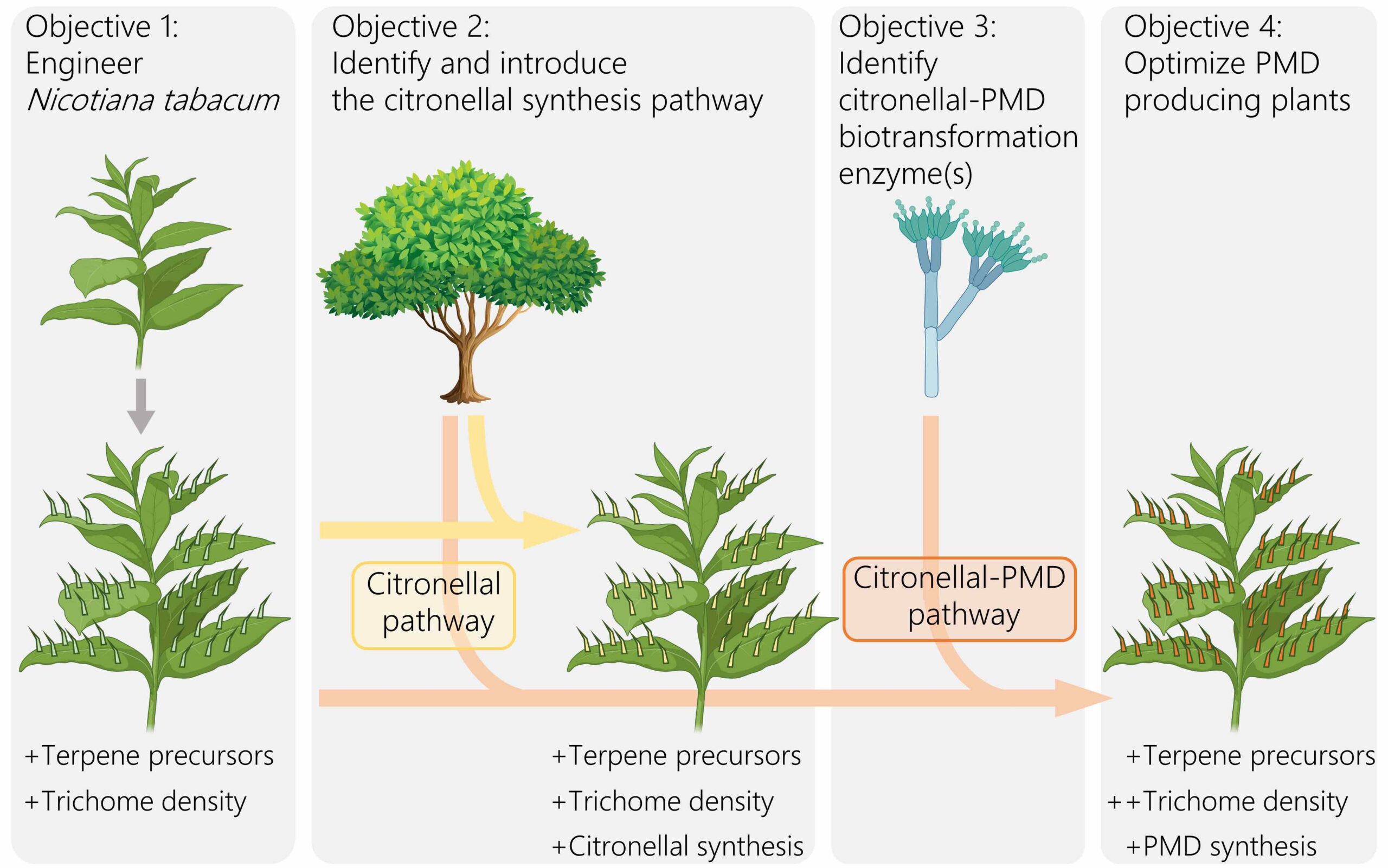Plant bio-factories as a sustainable source of high-value compounds
RESEARCH FELLOW

Eduardo González Grandío
Atracción de Talento "César Nombela" Fellow
Research Summary
Plants have played a vital role in human history, providing us with food and medicine. Thanks to recent advances in plant synthetic biology, we can now turn plants into bio-factories, enhancing the accumulation of natural compounds or even producing new-to-nature molecules. Our goal is to engineer plants to improve their production capabilities and modify them to manufacture high-value products in a sustainable way.
Research Lines
Engineering plant bio-factories as a sustainable source of high-value compounds
Plants have played a vital role in human history providing us with food and medicine. Even nowadays, some of the most efficient treatments against certain diseases are obtained from plant extracts. However, the natural low yield of these compounds presents a challenge for their widespread use. Thanks to recent advances in plant synthetic biology, we can now turn plants into bio-factories, enhancing the accumulation of natural compounds or even producing new-to-nature molecules, such as human vaccines.
Plant bio-factories have several advantages over classical bacterial or yeast bioreactors. Perhaps the most important is their scalability potential as they are autotrophic and they do not require sterile conditions for their growth in the open field. Plants possess specialized organs for the production and secretion of specialized metabolites, such as flowers, roots or trichomes, that facilitate the purification of the produced compound enormously. Furthermore, products from plant bio-factories are generally safer and require less processing for their use in humans as they do not harbor human or mammalian pathogens.
The aim of this project is to develop a plant bio-factory platform for sustainable production of terpenes, the largest family of plant secondary metabolites, with many uses in medicine, fragrance and flavor industries. As a first application, we will use these plants to produce an insect repellent that is currently synthetized chemically from citronellal, a plant monoterpene. Through transcriptomic and metabolomic analyses we will identify a metabolic pathway for the synthesis and biotransformation of citronellal, and introduce it in bioengineered Nicotiana tabacum plants, with optimal characteristics for terpene production. This mosquito repellent obtained from this new alternative and sustainable source will help prevent mosquito-transmitted diseases such as malaria or zika.

Development of plant synthetic biology tools to enhance crop performance
Agronomy faces significant global challenges such as coping with climate change, a need for more sustainable practices, and an increasing demand for more food of higher quality due to a growing population. Addressing them will require the adoption of transformative innovations, such as the genetic technologies that underlie Plant Synthetic Biology. Through transgenesis and more recently gene editing, we can now proactively alter plant DNA to modify their characteristics and address the aforementioned challenges.
In this project, in collaboration with Pilar Cubas (CNB-CSIC), we will develop a novel plant synthetic biology toolkit that includes the latest advances in gene editing (e.g., prime editing, homology directed recombination) with the objective of modifying the branching patterns of tomato plants to increase their agronomic production.

Development of plant synthetic biology tools to enhance crop performance
Agronomy faces significant global challenges such as coping with climate change, a need for more sustainable practices, and an increasing demand for more food of higher quality due to a growing population. Addressing them will require the adoption of transformative innovations, such as the genetic technologies that underlie Plant Synthetic Biology. Through transgenesis and more recently gene editing, we can now proactively alter plant DNA to modify their characteristics and address the aforementioned challenges.
In this project, in collaboration with Pilar Cubas (CNB-CSIC), we will develop a novel plant synthetic biology toolkit that includes the latest advances in gene editing (e.g., prime editing, homology directed recombination) with the objective of modifying the branching patterns of tomato plants to increase their agronomic production.




